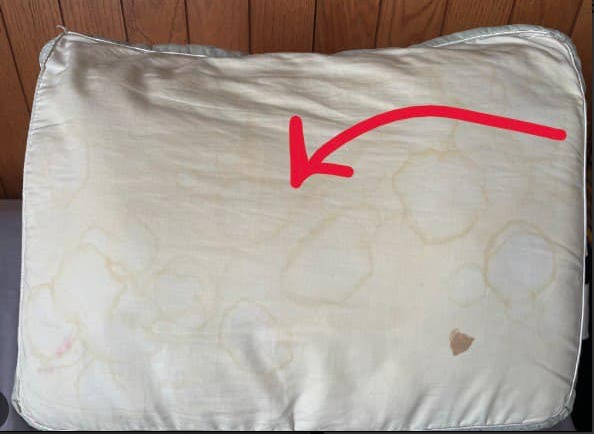ADVERTISEMENT
If you’ve been online this week, you’ve probably seen the viral story about a man whose girlfriend was furious when he introduced her to his “Yellow Pillow.” The man, Cam, didn’t hold back, admitting he owns a severely stained pillow, sparking a heated debate across social media. Cam’s confession came in a post on X (formerly Twitter), where he shared a photo of the pillow’s intense yellow color, along with the caption: “My girlfriend is upset at me since I disclosed to her The Yellow Pillow. Fellas, I am sure you are all aware that this item is magical.”
The post quickly went viral, leaving people divided. While some found the whole idea of the “Yellow Pillow” unsettling, others resonated with Cam’s unapologetic attachment. In his defense, Cam explained that the yellowed state of the pillow wasn’t intentional, but it has brought him the best sleep he’s ever had. “It’s not my fault the pillow is yellow—it’s what gives me the most peaceful slumber,” he wrote. The debate continued to grow, with commenters choosing sides. Some felt disgusted by the sight of a discolored pillow, while others rallied around Cam, claiming their own “Yellow Pillows” were irreplaceable sleep aids.
One user even admitted that they hadn’t slept well since parting with their own Yellow Pillow, jokingly adding that their life has been “a downward spiral” ever since. Another commenter claimed that having the same unwashed pillow since childhood was practically a badge of honor for men. Whether you find it gross or relatable, the story brings up an important question: why do pillows turn yellow over time?
The primary reason behind the yellowing of pillows is moisture. At the top of the list is sweat. Even if you don’t realize it, you sweat while you sleep, and that sweat seeps into the pillow, gradually staining it yellow. The average person sweats about 200-700 milliliters a night, and that moisture has nowhere to go except into the pillow. Over time, this accumulation creates the yellowish tint that Cam’s post made famous.
